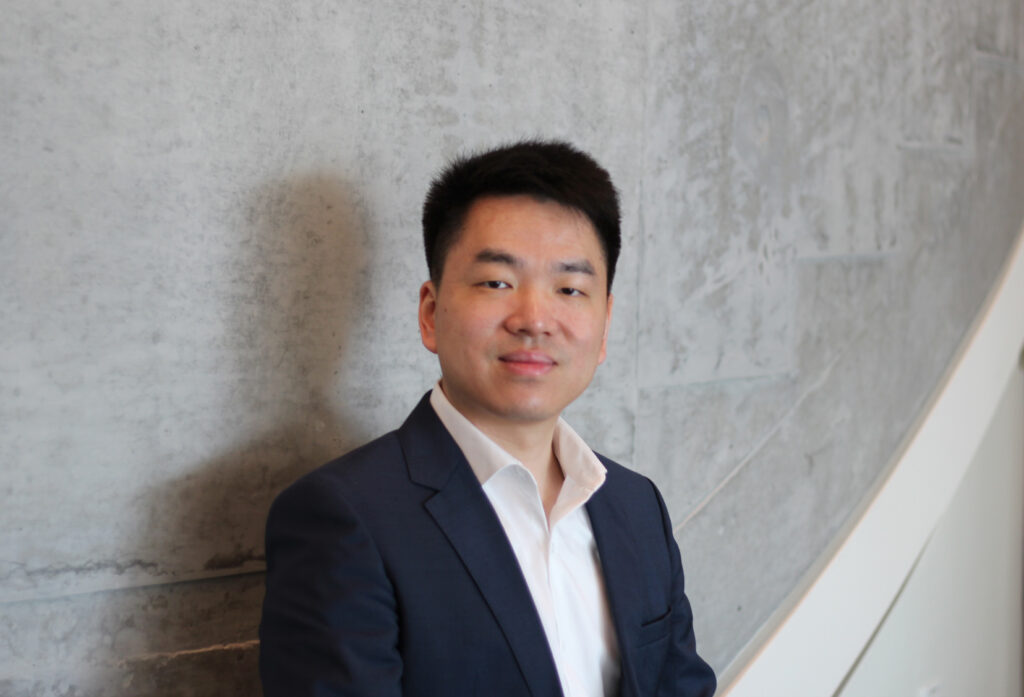Q&A with Qi Deng
Qi Deng (Assistant Professor, Business Analytics) joined the Sprott School of Business in July 2023. After a busy fall term teaching three courses, he sat down with us to talk about his areas of specialty, where he sees his research going next, and what brought him to Sprott.

What attracted you to a career in higher education?
Originally, it was my interest in doing research. During my Master’s program, I did a lot of research under the guidance of my supervisor, and that motivated me to do a PhD, which is also research-intensive. Now that I’ve been a professor for a few years, I’m finding the teaching component extremely interesting as well. I like working with my students and seeing them become successful. I also find it inspiring to learn how my students view the world.
Your specific areas of expertise include information systems and business analytics. How would you define these fields of study to general audiences?
Information systems focuses on the design, use, impact, and management of information technologies in the context of organizations. These organizations can be businesses, but they can also be non-profit or governmental organizations. The technologies can either be on the enterprise level, like Enterprise Resource Planning (ERP) systems, Customer Relationship Management (CRM) systems, or cloud computing, or on the individual level, like smart devices, virtual reality, or social media. The important thing is that the focus is on the intersection of people, process, and technology.
Business analytics, on the other hand, looks for ways of getting meaningful information from data. People working in this area may have very different backgrounds in statistics, computer science, operations management, or traditional business areas like marketing, information systems, or finance. These diverse backgrounds help shape what they do under the umbrella concept of analytics. As for me, I like working with data. My research involves applying data analytics techniques, especially natural language processing, to examine business problems.
Could you map out your current research interests?
In very broad terms, my research is about digital communication, especially between brands and consumers. Every year, brands invest money in social media marketing, but they don’t always know how they can best communicate with and engage their consumers. We’ve been looking at how they can optimize their digital communications.
This research has led to a couple of projects that focus specifically on emojis. In one, we explore how brands can use emojis creatively to increase consumer engagement. In the other, we consider certain scenarios where brands’ emoji use could backfire, that is, negatively impact consumers’ reactions.
We’ve also been looking at how the language and other features of chatbots influences consumers’ expectations and perceptions. With this project, the communication is still between brands and consumers, but there’s the added element of artificial intelligence (AI). The overall idea is to understand how AI can better communicate and collaborate with humans.
Is there a particular project you are especially excited about?
One area I’m excited to explore is personal analytics. Normally, when we talk about analytics, we are referring to the application of analytics in the business context, but analytics can also inform our personal lives. For example, smart phones or smart watches collect massive amounts of data, but it’s unclear whether people are using this data to improve their well-being or to support their healthcare. Similarly, mobile apps designed for investment typically contain immense built-in analytics power, but are people using this capacity to make better decisions? I’m not sure, but I think this could be a fascinating area to study.
Which courses were you most excited about teaching? Which ones aligned most closely with your research program?
Last term, I taught Social Analytics, which involves analysis of social media data, especially textual data from social media. That course aligned well with my research in terms of natural language processing. However, I also really enjoyed the Data Science for Business course that I taught for the MFin program. That course teaches students how to do data analysis using Python, and the programming focus makes it pretty different from my previous teaching experience, but I enjoyed it so much I’m going to teach it again next year.
What drew you to Sprott?
I got my PhD at Sprott and had very good learning experiences at Carleton. For years, I’ve seen myself as part of the Sprott community either as a student, an alumnus, or now as a faculty member. Looking ahead, I see Sprott as a promising place for work, with exciting new programs, a strong research culture, and a supportive environment. Besides, I am a Ravens fan; my wife and I used to go to basketball games as graduate students. Altogether, I have a very positive connection with Sprott and with Carleton.